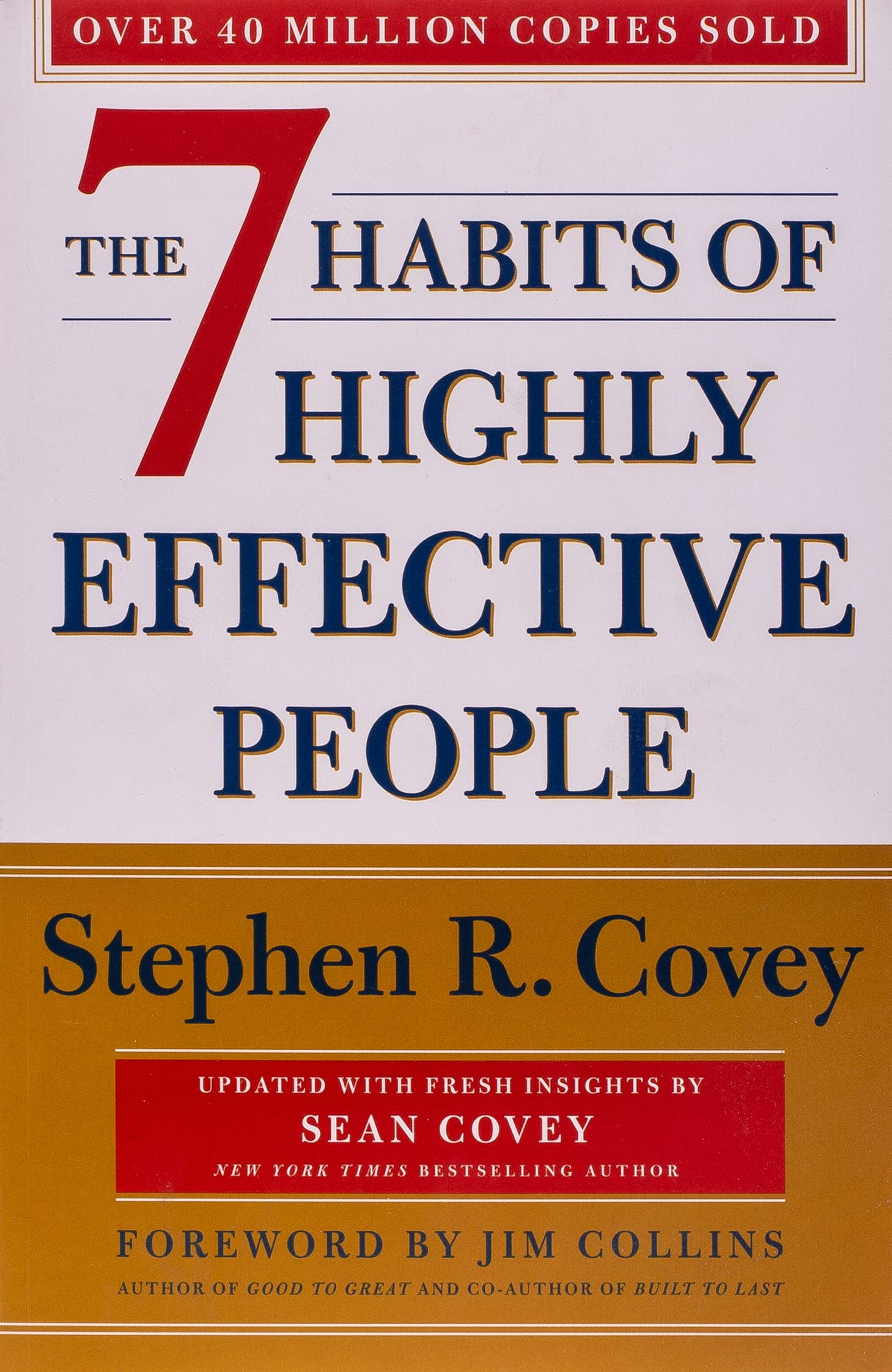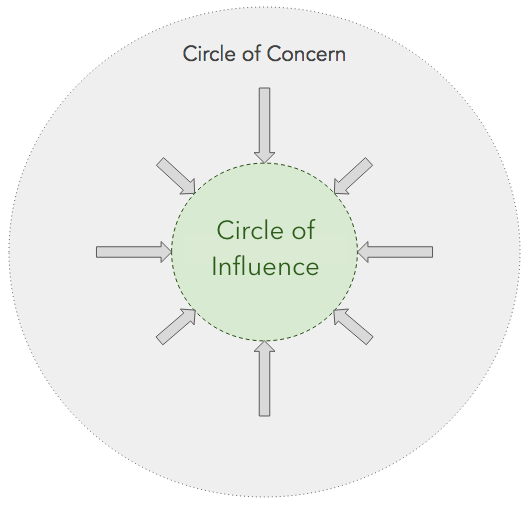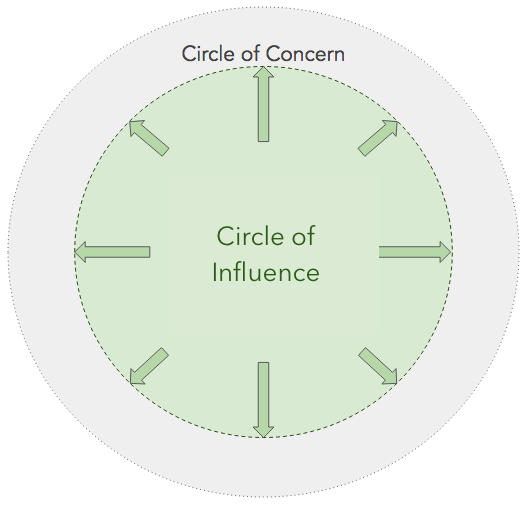The Circle of Concern, Influence and Control
Let’s face it, life can be challenging. We all have things in our life that challenge us – whether it is people, situations or the environment we live in.
One of the fundamental Stoic principles for achieving “tranquillity” is to focus only on those things over which one has control.
“We should always be asking ourselves: “Is this something that is, or is not, in my control?””
– Epictetus
In his book The 7 Habits of Highly Effective People, Stephen R. Covey talked about the concept of Circle of Concern and Circle of Influence.

This post will focus on the first habit: being proactive.
The First Habit: Be Proactive
Being proactive is about taking responsibility for your life. You can’t keep blaming everything on your parents or grandparents. Proactive people recognize that they are “response-able.” They don’t blame genetics, circumstances, conditions, or conditioning for their behavior. They know they choose their behavior.
Reactive people, on the other hand, are often affected by their physical environment. They find external sources to blame for their behavior. If the weather is good, they feel good. If it isn’t, it affects their attitude and performance, and they blame the weather.
“It’s not what happens to you, but how you react to it that matters.”
– Epictetus
All of these external forces act as stimuli that we respond to. Between the stimulus and the response is your greatest power – you have the freedom to choose your response.
One of the most important things you choose is what you say.
“Everything can be taken from a man but one thing: the last of human freedoms - to choose one’s attitude in any given set of circumstances, to choose one’s own way.”
– Viktor Frankl
The Circle of Influence for Reactive people
Reactive people focus their efforts in the Circle of Concern – things over which they have little or no control: the national debt, terrorism, or the weather. They blame circumstances, the weather, the others’ weaknesses, behaviours and attitudes. If they don’t get the promotion they wanted, it’s because of the hiring manager or the successful candidate. If they’re unhappy, it’s because the others are richer/healthier/thinner/in a relationship. They willingly play the role of victims.
They neglect areas where they could do something about. As a result, they end up having very little control over most aspects of their life.

The Circle of Influence for Proactive people
Gaining an awareness of the areas in which we expend our energies is a giant step in becoming proactive.
A proactive person uses proactive language – I can, I will, I prefer, etc.
A reactive person uses reactive language – I can’t, I have to, if only.
Proactive people focus their efforts on their Circle of Influence. They work on the things they can do something about: health, children, or problems at work.
With their efforts to take on responsibility for what happens in their life, proactive people build a positive mindset. They see outcomes to the things they initiate. They cultivate change and growth. As a result, their Circle of Influence grows and their Circle of Concern shrinks.

The Circle of Control
Often, a third circle is added inside of the Circle of Influence: the Circle of Control, which describes the things we can directly influence, whereas the circle of influence contains things over which we have some, but not complete control.

What you can do about issues in the …
Circle of Concern
Accept – these concerns are outside of your control and influence. Try to let these go and focus on what you can influence and control.
Circle of Influence
Influence – be realistic about the concerns you can influence. Score your influence on a scale of 1-10 and any concern scoring lower than 5, move to ‘Accept’.
Circle of Control
Control – direct your time and energy towards the elements that you can control. This will minimize feelings of overwhelm and frustration.
“God grant me the serenity to accept the things I
cannotchange; courage to change the things I can; and wisdom to know the difference.”– Serenity Prayer
So, where are you currently spending the majority of your time? In the circle of concern, influence, or control?
Let's get to work on what we can control, which is how we respond to those things we cannot.